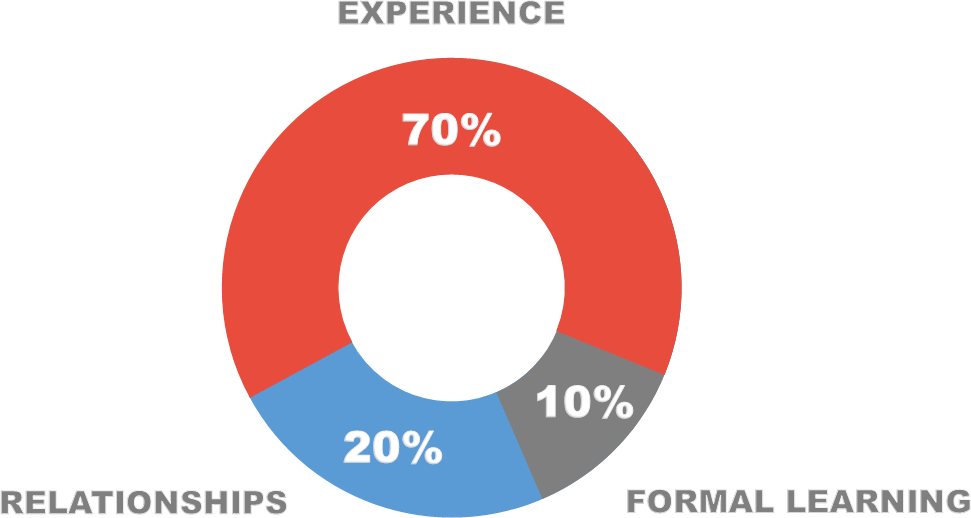Experience-Based Development
A lot of organizations are talking about 70-20-10 as an approach to developing talent. They are endorsing the idea that 70% of what they learn comes from on-the-job experience, 20% comes from relationships and feedback from others, and just 10% comes from formal learning experiences such as those provided in the classroom.
Those adopting the 70-20-10 philosophy are generally seeking to tap the unharnessed 70 percent. To do so, they seek to develop people by attaching a learning agenda to work on the job. Sometimes this means that people are placed into developmental assignments as a result of thoughtful planning. Too often, however, people are simply told to come up with a development plan that enables them to learn while doing the job. And that’s it; little or no additional guidance is provided.

But understanding the developmental potential of an experience, for yourself or another person, isn’t all that easy. Most managers are used to thinking with a problem-solving mindset; they diagnose a problem (e.g., a development need), and find a targeted solution (a course, a coach, etc.).
Using experiences as a form of development, however, requires us to acknowledge that the real world isn’t all that linear. Work experiences are not like classes. They don’t come with a set of learning objectives. In fact, different people often learn different things from the same experience. That makes it challenging to systematically harness experience to impact talent development. It can be done, but it requires new models and tools for assessing both individuals and experiences.
At the heart of the 70-20-10 idea is the notion that, while the best people have exceptional natural talents, they only become great because they:- Seek and get great experiences
- Learn useful lessons from their experiences
- Apply the lessons they learn to tackle ever larger challenges
While people can’t change their natural talents, they can improve their ability to identify great experiences and learn more from them. FrameBreaking™ provides the tools for current and aspiring leaders to unlock the developmental potential of any experience.
